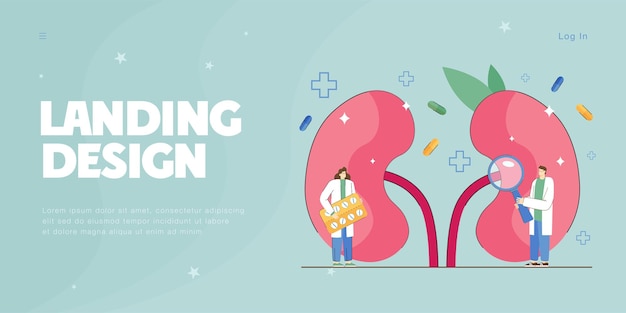
The kidney is one of the most important organs in your body. It filters out impurities from your blood and releases them as urine. Additionally, it helps balance fluid levels, releases hormones, and regulates blood pressure—all essential for staying healthy.
Because of these critical functions, it’s important to pay attention to your kidney health by taking proactive steps to improve its function. Kidney disease is fairly common, affecting 10% of the global population with chronic kidney disease (CKD), which can be life-threatening.
Several health factors increase the risk of chronic kidney disease, such as high blood pressure, diabetes, and obesity. Unhealthy lifestyle habits, like excessive alcohol consumption, smoking, a sedentary lifestyle, and genetics, can also damage your kidneys over time.
Since the kidneys purify your blood and support overall body health, maintaining their health proactively is vital. Some foods can naturally boost kidney function. However, not all are suitable for those already diagnosed with kidney diseases. It’s also important to avoid foods that put extra stress on the kidneys and to get regular checkups to monitor kidney health.
### 9 Most Effective Tips to Improve Kidney Function
#### Monitor Your Blood Pressure Regularly
High blood pressure increases the risk of many health issues, including kidney damage. A normal blood pressure level is around 120/80. If your blood pressure is between 120/80 and 139/89, lifestyle and dietary changes can help. Once it reaches 140/90 or higher, regular monitoring and medical supervision are necessary to prevent kidney damage, especially if you have other health issues like diabetes or high cholesterol.
#### Stay Hydrated
Drinking enough water, typically 1.5 to 2 liters a day, helps remove toxins, urea, and sodium from your body, supporting kidney health. However, avoid excessive water intake, as it can strain the kidneys. Factors like age, gender, activity level, health condition, pregnancy, or breastfeeding can influence how much water you need.
People with kidney stones should aim for around 3 liters of water a day to prevent stone growth. Generally, drinking about 4 to 6 glasses of water daily is beneficial for your kidney health.
#### Keep Your Blood Sugar in Check
Diabetes significantly increases the risk of kidney disease. Regularly monitoring kidney function and controlling blood sugar levels can prevent kidney damage. Consult your healthcare specialist to manage blood sugar effectively and protect your kidneys.
#### Stay Fit and Active
Regular physical activity helps control blood pressure and reduces the risk of chronic kidney disease. Even daily household chores can keep your muscles active and manage body weight, which is crucial as obesity increases kidney disease risk.
Incorporate at least 150 minutes of moderate exercise, like walking, swimming, or cycling, into your weekly routine. Consult your doctor before starting any new exercise regimen, especially if you have heart disease, to avoid overexertion that could harm your kidneys.
#### Eat a Healthy Diet and Maintain a Healthy Weight
Healthy eating can prevent conditions that exacerbate kidney disease, such as high blood pressure and diabetes. Aim for a balanced diet with plenty of fiber and protein while avoiding processed foods and excess sodium (recommended limit is 5 to 6 grams per day). Controlling body weight helps maintain kidney health. Get dietary advice from your doctor to ensure you’re eating foods that support kidney function.
#### Avoid Frequent Use of Over-The-Counter Medications
Frequent use of over-the-counter medications, particularly non-steroidal anti-inflammatory drugs (NSAIDs) like Ibuprofen and Naproxen, can damage your kidneys over time. For chronic pain issues, consult your healthcare provider for alternatives to these medications to protect kidney health.
#### Quit Smoking
Smoking damages blood vessels and reduces blood flow to the kidneys, impairing their function. It also increases the risk of kidney cancer by 50% and raises blood pressure, which is harmful to kidneys. Quitting smoking can significantly improve kidney health and overall well-being.
#### Limit Alcohol Consumption
Moderate alcohol intake (one glass per day for women and two for men) is generally safe. Excessive drinking, however, harms the liver and kidneys, raises blood pressure, and can lead to diabetes and obesity-related kidney issues. Stick to moderate drinking to avoid these risks.
#### Regular Kidney Function Checkups
If you have conditions like hypertension, diabetes, or a family history of kidney disease, regular screenings are crucial. Early detection can prevent significant kidney damage with timely medical intervention. Routine checkups are also important because kidney diseases can develop without noticeable symptoms.
By following these tips, you can improve your kidney function and prevent chronic kidney diseases.